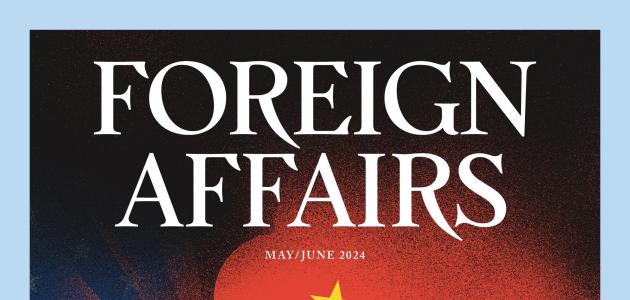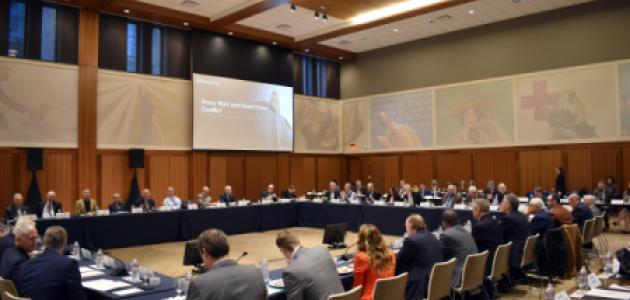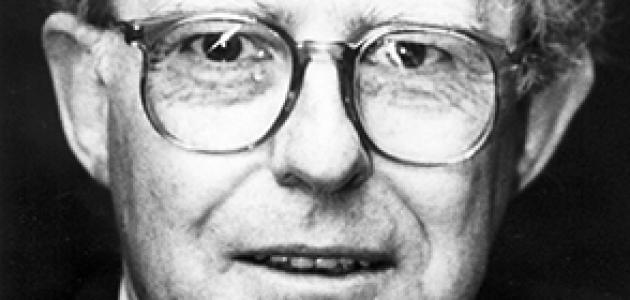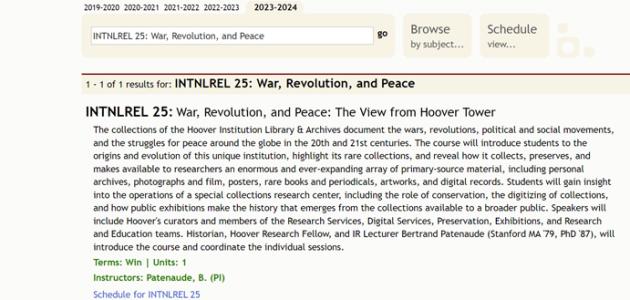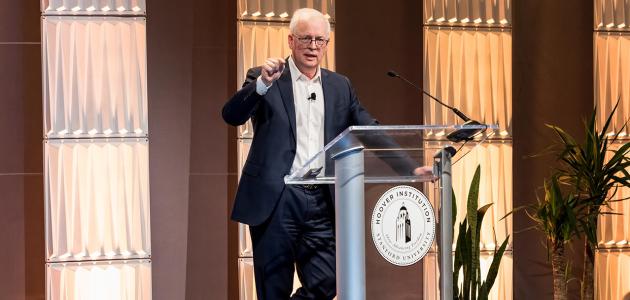The Hoover Institution today unveiled its new Modern China Archives and Special Collections and honored donors of materials to that new initiative.
This new initiative was celebrated on February 16 with presentations about the new archives, China's political and economic evolution, and public remarks by Chinese donors. The project enhances and continues the important collecting efforts started by Herbert Hoover in the early part of the 20th century.
Representatives of the Hoover Institution and donors also announced a historic agreement to microfilm official records of the Kuomintang Party in Taipei. In addition, it was announced that the diaries of Chiang Kai-shek and of his son Chiang Ching-kuo will be on loan to the Hoover Institution for 50 years or until a permanent repository is found on the territory of China.
Speakers included Kurt Hauser, chairman of the Hoover Institution Board of Overseers; Elena Danielson, director of the Hoover Library and Archives, who discussed the archival expansion; Ramon Myers, senior fellow, on the political changes in China; and representatives of the Kuomintang Party, the National Women's League of the Republic of China, the Soong family, and the Chiang family.
INITIATIVES
In 2003 the Hoover Institution on War, Revolution and Peace signed an agreement with the Chinese Kuomintang (KMT), or Nationalist Party of the Republic of China (ROC), to help preserve the vast historical records held in that party's archives in Taipei, Taiwan. As the longest-enduring political party in Asia, the KMT was China's premier revolutionary party until it was defeated in 1949 by Chinese Communist Party forces and forced to relocate in Taiwan. The historic Hoover agreement provides for microfilming the official party records, which will stay in Taiwan, along with a preservation copy. A use copy will be made available in the Hoover Archives.
More recently, the Chiang family agreed to deposit the diaries of two presidents, Chiang Kai-shek and Chiang Ching-kuo, at Hoover pending the creation of a suitable repository or presidential library system on the territory of China.
The National Women's League in Taipei also agreed to have its materials preserved in the archives. Its materials include many documents pertaining to and collected by Madame Chiang Kai-shek (Mayling Soong Chiang), who was the founder of the Women's League.
The T. V. Soong family began donating its materials to the Hoover Institution Archives in 1973, followed by additional papers in April 1980 and again in the spring of 2004. The papers of T. V. Soong are one of many preeminent collections in the new initiative. Americans involved in China, such as General Albert Wedemeyer and General Joseph Stilwell, also donated their papers to the Hoover Archives.
These donations, as well as agreements for future archival materials not yet finalized, will help create the Modern China Archives and Special Collections. These special collections are now being integrated with the China-related material accumulated since 1919. (Trade press materials, such as published vernacular Chinese books and serials, were transferred from the Hoover Archives to the Stanford University Libraries in 2002.)
HISTORY
In 1899, twenty-five-year-old Herbert Hoover and his wife, Lou Henry, were living in Tientsin, China, where he was the co-manager of the Kaiping mines. It was there that Hoover first began to study Chinese language and history.
In 1907 Hoover helped Stanford University historian Payson Treat buy books about China, especially its history; in 1913 Hoover donated six hundred such books, some very rare, to Stanford University.
In 1919 Hoover's interest in foreign affairs inspired him to establish the Hoover War Collection (as the Hoover Institution Library and Archives was then called). After World War II, with luck and good timing, Chinese and non-Chinese public servants, military officers, engineers, journalists, scholars, and the like began donating their private papers and other materials to the Hoover Institution, where they were to be preserved and made available to interested readers.
The Hoover Archives collections are global in scope, with notable holdings on the Americas, Russia, Europe, Latin America, and Asia. About 400 of the 5,470 collections relate to China.
EXHIBIT
The February 16 presentation and celebration also marked the opening of "Unlocking Chinese History: New Initiatives of the Hoover Archives," a new exhibit in the Herbert Hoover Memorial Exhibit Pavilion. A number of the materials from the new collections are on display, including original diaries of Chiang Kai-Shek and Chiang Ching-Kuo, illuminating how they viewed various incidents of modern Chinese history.
The exhibit may be viewed until April 9. The Exhibit Pavilion, located at the Hoover Institution on the Stanford University campus, adjacent to Hoover Tower, is open Tuesday through Saturday, 11 AM through 4 PM. For additional information, contact the Hoover Institution Archives, 650-723-3563 or www.hoover.org/hila. Group tours are available.
The Hoover Institution, founded at Stanford University in 1919 by Herbert Hoover, who went on to become the 31st president of the United States, is an interdisciplinary research center for advanced study on domestic public policy and international affairs, with an internationally renowned library and archives.




